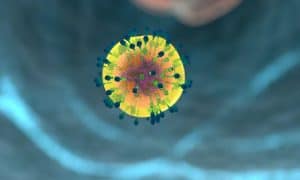Featured Products
Explore Products- In-Stock Tumor Cell Lines
- Human Orbital Fibroblasts
- Human Microglia
- Human Pulmonary Alveolar Epithelial Cells
- Human Colonic Fibroblasts
- Human Type II Alveolar Epithelial Cells
- Human Valvular Interstitial Cells
- Human Thyroid Epithelial Cells
- C57BL/6 Mouse Dermal Fibroblasts
- Human Alveolar Macrophages
- Human Dermal Fibroblasts, Adult
- Human Lung Fibroblasts, Adult
- Human Retinal Muller Cells
- Human Articular Chondrocytes
- Human Retinal Pigment Epithelial Cells
- Human Pancreatic Islets of Langerhans Cells
- Human Kidney Podocyte Cells
- Human Renal Proximal Tubule Cells




 PF-382 is a human T cell line derived from the pleural effusion of a young child diagnosed with T-acute lymphoblastic leukemia (T-ALL). These cells exhibit suppressive characteristics, both phenotypically and functionally. With a modal number of 46 chromosomes, PF-382 cells display a prevalent chromosomal abnormality involving a translocation between chromosome X and chromosome 15 (46X,Xq–,15p+). They demonstrate reactivity to OKT6, Leu-1, and Leu-9 monoclonal antibodies, which identify early T-lymphocytes, while expressing the more mature OKT8 antigen.
PF-382 is a human T cell line derived from the pleural effusion of a young child diagnosed with T-acute lymphoblastic leukemia (T-ALL). These cells exhibit suppressive characteristics, both phenotypically and functionally. With a modal number of 46 chromosomes, PF-382 cells display a prevalent chromosomal abnormality involving a translocation between chromosome X and chromosome 15 (46X,Xq–,15p+). They demonstrate reactivity to OKT6, Leu-1, and Leu-9 monoclonal antibodies, which identify early T-lymphocytes, while expressing the more mature OKT8 antigen.